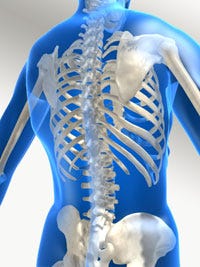Bumps in the road, but medical market continues to hum
There was some hiring going on, and some concern about running out of plastics, rather than work. If conversations at the Medtec show in March are any indication, medical remains a relatively safe haven for some plastics processors.
April 29, 2009
There was some hiring going on, and some concern about running out of plastics, rather than work. If conversations at the Medtec show in March are any indication, medical remains a relatively safe haven for some plastics processors.
At Swiss injection molder Gemü (Rotkreuz), Beat Wasser, sales manager medical division, said his company already has hired three new employees in 2009, and is still searching for three more—hardly huge until one considers this is a 10% increase in the processor’s rolls. “Our business remains solid,” Wasser said. The Swiss facility is strictly medical, having once been the captive processing arm of parent company Gemü, a manufacturer of valves and controls, and now, while still molding for its parent, also offers contract services, to include rapid prototyping.
At Swiss competitor Weidmann (Rapperswil, Switzerland), Kurt Eggmann, director of sales and project management, said that, while his company is seeing some caution among its customers with regard to launching new projects, business has remained relatively stable. One result of the economic downturn has been that OEMs increasingly have to worry about the health of their supply chain, he said, adding that this stands his solvent company in good stead.
|
But, he added, another result has been that processors such as his, which have not seen a major downturn in business, increasingly are forced to be concerned with their own supply chains, most especially with the poor health of plastics suppliers: Eggmann specifically citied the recent bankruptcy of LyondellBasell as well as rumors that other major suppliers also may be in dire financial straits. “We’re worried about our supply chain, too. We’re finding ourselves forced to tie up capital by buying resin in advance and storing it … we hate it, but we see a need to ensure our supply.”
On the technical side, Eggmann said the “lab-on-a-chip” technology which his company has pushed and developed for some years (see November 2003 MPW for initial report) continues to win converts in the medical market, although slowly. These parts, used for example to conduct tests on multiple samples simultaneously, or multiple tests of a single patient’s sample, involve intricate micromolding of hundreds of tiny (diameters of 30 µm or less are not unusual) channels through which liquids can flow. Cyclic olefinic copolymers (COCs) typically are used for these parts, he said.
Not all medical molders are doing so well, of course, but it was difficult to find one willing to admit it. Injection molding wasn’t the only process being touted. Daniel Bitai, technical sales director at TKT GmbH (Geretsried, Germany), said his firm’s vacuum forming machines are kept busy processing parts such as housings for medical devices.
Making it stick
Although primarily a business trade show, there also was talk of new technology during Medtec. Welding figured prominently in a number of new development projects or potential ones. For instance, Gemü’s Wasser said his firm just began offering laser welding in a cleanroom environment for endoscopic devices for an unidentified customer. The processor worked with laser manufacturer Leister (Sarnen, Switzerland) on the project. Laser welding allows the processor and its customer to avoid the use of adhesives, which may react negatively with some medicines or patients; stripping the adhesive from the part also cuts by one the number of materials requiring medical use clearance.
Also touting its laser welding systems was LPKF (Erlangen, Germany), which offers a new laser welding system, the LQ-Vario MF, which can be used to affix parts with a weld seam as small as 1-2 mm in width, according to Rico Bühring from the firm’s application center. —[email protected]
About the Author(s)
You May Also Like



